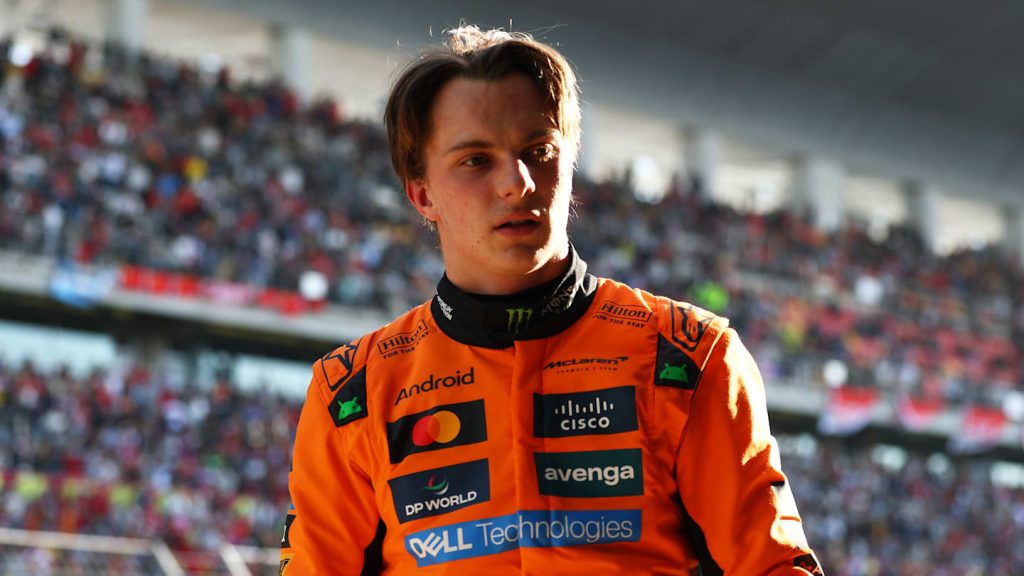Oscar Piastri emerged from the Japanese Grand Prix on Sunday with a mix of satisfaction and frustration, finishing third behind race winner Max Verstappen and teammate Lando Norris. The McLaren driver insisted his pace throughout the race was “mega,” despite being unable to challenge for the victory, and offered a measured defense of his team’s decision not to intervene in his battle with Norris.
The race at the iconic Suzuka Circuit saw Verstappen secure his fourth consecutive Japanese Grand Prix win, fending off a strong challenge from the McLaren duo. Norris, starting second, and Piastri, starting third, maintained their qualifying positions through to the chequered flag, with Verstappen’s Red Bull proving untouchable after a stellar pole lap on Saturday. However, it was Piastri’s pace in the latter stages that raised eyebrows—and questions about McLaren’s strategy.
Running in Norris’s dirty air for much of the race, Piastri showcased bursts of speed that brought him within DRS range of his teammate with 11 laps remaining. Over the radio, the Australian made his case to McLaren, suggesting he had the pace to take on Verstappen if given the chance to pass Norris. “I think we have the pace to get Max,” Piastri told his race engineer, a sentiment he echoed post-race.
“There wasn’t much debate, to be honest,” Piastri said when asked about the prospect of team orders. “I felt like I had really strong pace, and if I had the track position, I could go and get Max. But that’s what happens when you qualify behind, unfortunately. I at least asked the question, and I think that was a fair response.”
McLaren team principal Andrea Stella, however, downplayed the notion that Piastri held a decisive pace advantage. “We are here first of all to beat the other teams and put McLaren in a strong position,” Stella said after the race. “When McLaren is in a strong position, then that’s the best position for the two drivers to pursue their aspirations.” He argued that Norris’s struggles to close the gap to Verstappen were exacerbated by dirty air, masking the true pace differential between the McLaren pair.
Piastri, celebrating his 24th birthday on race day, admitted that qualifying had ultimately dictated his fate. “Yesterday was the day where you effectively won the race, and I didn’t do a good enough job,” he conceded. Verstappen’s pole time of 1m 26.983s edged Norris by just 0.012s and Piastri by 0.044s, underlining how fine the margins were at Suzuka. “The pace today was really, really good, and I was very happy with that,” Piastri added. “I got close a few times and tried to mount a challenge, but track position around here is just so important.”
Despite the missed opportunity, Piastri took positives from the weekend. McLaren’s double podium extended their lead in the Constructors’ Championship to 36 points over Mercedes, with Norris holding a slender one-point advantage over Verstappen in the Drivers’ standings. “It’s obviously not the result I wanted, but in terms of the pace and the way I achieved the result, that’s what I wanted,” Piastri said. “There’s still a lot of positives to take out of this weekend. I think the pace was mega. Next time, I just need to make sure I’m in a better position to use it.”
Norris, meanwhile, acknowledged Verstappen’s flawless drive. “Max drove a good race today, no mistakes, and the pace was too similar to do anything more,” he said. “It was a flat-out race from start to finish—tough, but just not enough today.” The Briton also brushed off a tense moment in the pits when he and Verstappen exited side-by-side, forcing Norris onto the grass—an incident the stewards opted not to investigate.


